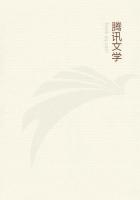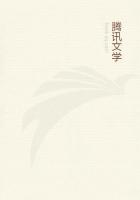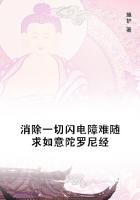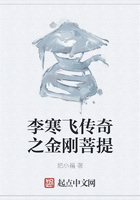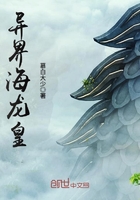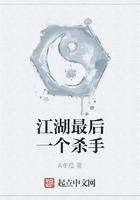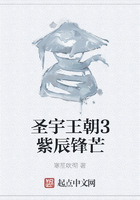Honest Thady tells the story; you can almost hear his voice, and see him as he stands: 'I wear a long greatcoat winter and summer, which is very handy, as I never put my arms into the sleeves;they are as good as new, though come Holantide next I've had it these seven years: it holds on by a single button round my neck, cloak fashion. To look at me, you would hardly think "Poor Thady" was the father of Attorney Quirk; he is a high gentleman, and never minds what poor Thady says, and having better than fifteen hundred a year landed estate, looks down upon honest Thady; but I wash my hands of his doings, and as I have lived, so will I die, true and loyal to the family. The family of Rackrents is, I am proud to say, one of the most ancient in the kingdom.' And then he gives the history of the Rackrents, beginning with Sir Patrick, who could sit out the best man in Ireland, let alone the three kingdoms itself, and who fitted up the chicken-house to accommodate his friends when they honoured him unexpectedly with their company. There was 'such a fine whillaluh at Sir Patrick's funeral, you might have heard it to the farthest end of the county, and happy the man who could get but a sight of the hearse.' Then came Sir Murtagh, who used to boast that he had a law-suit for every letter in the alphabet.
'He dug up a fairy-mount against my advice,' says Thady, 'and had no luck afterwards. . . . Sir Murtagh in his passion broke a blood-vessel, and all the law in the land could do nothing in that case. . . . My lady had a fine jointure settled upon her, and took herself away, to the great joy of the tenantry. I never said anything one way or the other,' says Thady, 'whilst she was part of the family, but got up to see her go at three o'clock in the morning. "It's a fine morning, honest Thady," says she;"good-bye to ye," and into the carriage she stepped, without a word more, good or bad, or even half-a-crown, but I made my bow, and stood to see her safe out of sight for the sake of the family.'
How marvellously vivid it all is! every word tells as the generations pass before us. The very spirit of romantic Irish fidelity is incarnate in Thady. Jason Quirk represents the feline element, which also belongs to our extraordinary Celtic race. The little volume contains the history of a nation. It is a masterpiece which Miss Edgeworth has never surpassed. It is almost provoking to have so many details of other and less interesting stories, such as EARLY LESSONS, A KNAPSACK, THEPRUSSIAN VASE, etc., and to hear so little of these two books by which she will be best remembered.
AUTHOR'S PREFACE
The Prevailing taste of the public for anecdote has been censured and ridiculed by critics who aspire to the character of superior wisdom; but if we consider it in a proper point of view, this taste is an incontestable proof of the good sense and profoundly philosophic temper of the present times. Of the numbers who study, or at least who read history, how few derive any advantage from their labours! The heroes of history are so decked out by the fine fancy of the professed historian; they talk in such measured prose, and act from such sublime or such diabolical motives, that few have sufficient taste, wickedness, or heroism, to sympathise in their fate. Besides, there is much uncertainty even in the best authenticated ancient or modern histories; and that love of truth, which in some minds is innate and immutable, necessarily leads to a love of secret memoirs and private anecdotes. We cannot judge either of the feelings or of the characters of men with perfect accuracy, from their actions or their appearance in public; it is from their careless conversations, their half-finished sentences, that we may hope with the greatest probability of success to discover their real characters. The life of a great or of a little man written by himself, the familiar letters, the diary of any individual published by his friends or by his enemies, after his decease, are esteemed important literary curiosities. We are surely justified, in this eager desire, to collect the most minute facts relative to the domestic lives, not only of the great and good, but even of the worthless and insignificant, since it is only by a comparison of their actual happiness or misery in the privacy of domestic life that we can form a just estimate of the real reward of virtue, or the real punishment of vice. That the great are not as happy as they seem, that the external circumstances of fortune and rank do not constitute felicity, is asserted by every moralist: the historian can seldom, consistently with his dignity, pause to illustrate this truth; it is therefore to the biographer we must have recourse. After we have beheld splendid characters playing their parts on the great theatre of the world, with all the advantages of stage effect and decoration, we anxiously beg to be admitted behind the scenes, that we may take a nearer view of the actors and actresses.
Some may perhaps imagine that the value of biography depends upon the judgment and taste of the biographer; but on the contrary it may be maintained, that the merits of a biographer are inversely as the extent of his intellectual powers and of his literary talents. A plain unvarnished tale is preferable to the most highly ornamented narrative. Where we see that a man has the power, we may naturally suspect that he has the will to deceive us; and those who are used to literary manufacture know how much is often sacrificed to the rounding of a period, or the pointing of an antithesis.
That the ignorant may have their prejudices as well as the learned cannot be disputed; but we see and despise vulgar errors:


